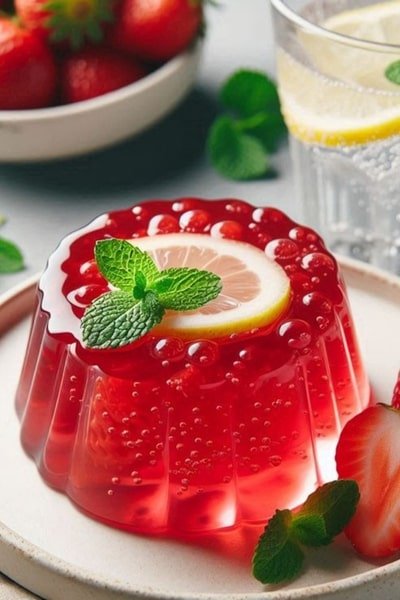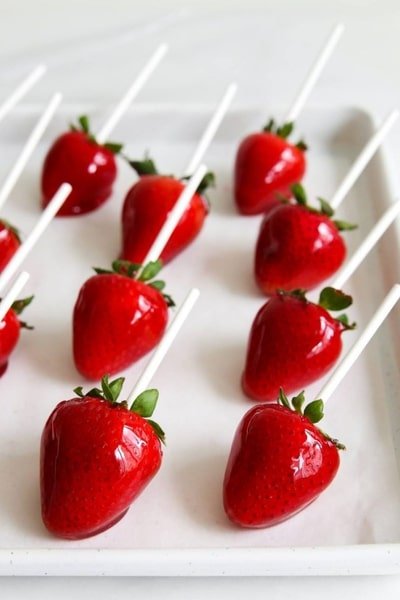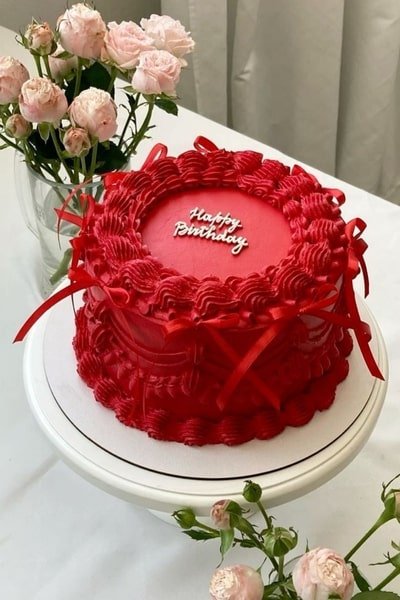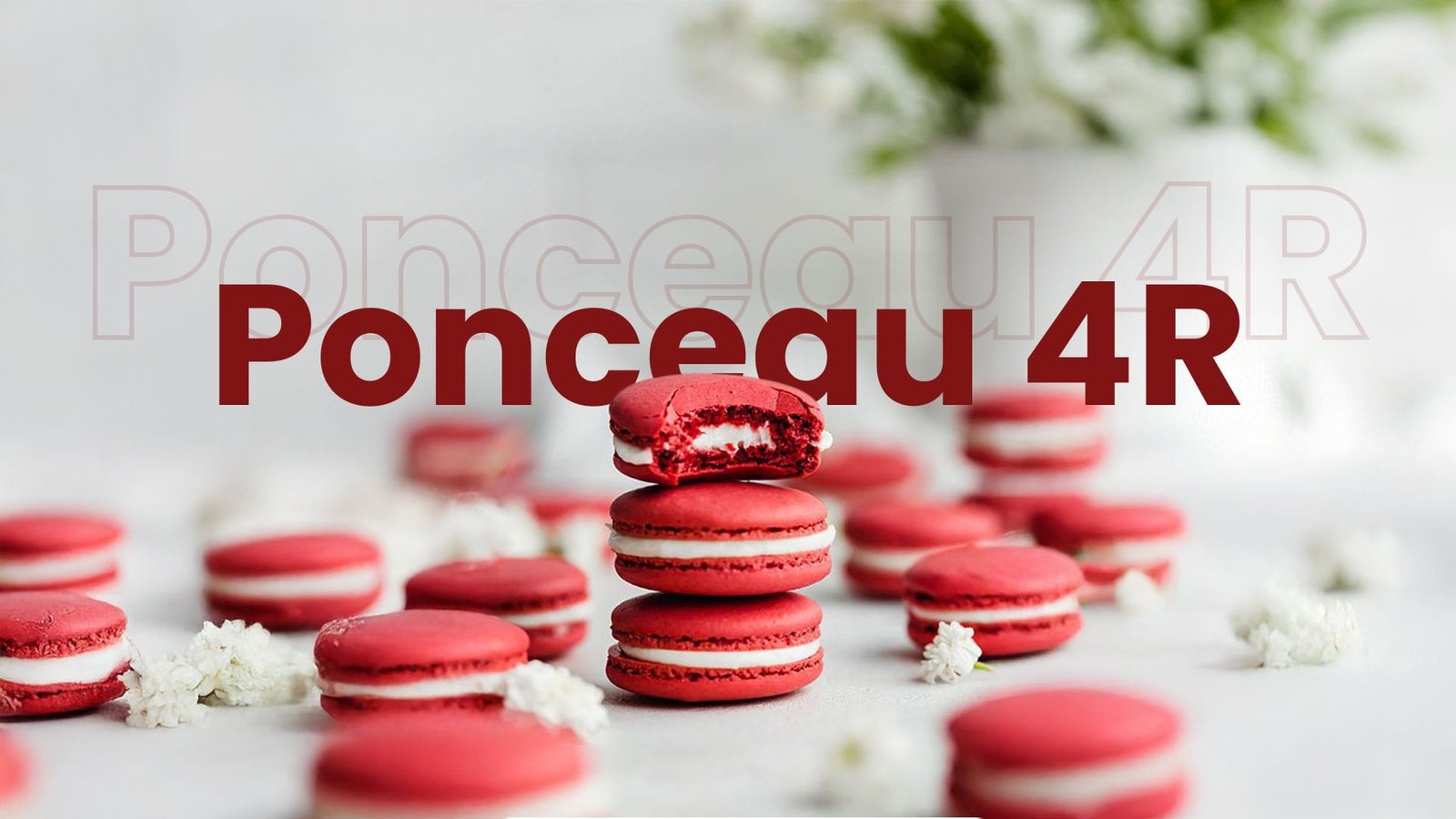Ponceau 4R Colour for Confectionery in Malaysia: How to Choose the Right Supplier

If you’re working in confectionery in Malaysia, you’ve likely come across Ponceau 4R colour. It’s a bright red synthetic food dye, also known as E124, used widely in sweets, jellies, and bakery products to create that strong, attractive red shade customers love.
I’ve been exporting food-grade synthetic colours for years, and here’s what I see often. Many buyers focus only on the shade or price. But the real issue is deeper. If your Ponceau 4R colour doesn’t meet Malaysian food safety standards, you risk fines, rejections, or worse – losing buyer trust.
In Malaysia, quality and compliance aren’t optional. Your product needs to be approved for food use, with full certification like Halal or MESTI, along with COA and TDS to prove purity and safety. Otherwise, even if you get a cheaper batch, you could end up stuck with goods you can’t use or sell.
When you choose the right Ponceau 4R supplier in Malaysia, you’re not just buying a colour. You’re ensuring your brand stays reliable, your sweets and bakery products remain consistent, and your customers feel safe buying from you.
What is Ponceau 4R Colour? Quick Facts You Should Know
Ponceau 4R colour is a synthetic food dye known by its code E124. It gives products a strong red shade, often slightly orange-red. Chemically, it’s part of the azo dye group, which is why it holds colour well in sweets and jellies without fading during processing.
Origin and type:
Ponceau 4R is manufactured synthetically. It’s not natural like beetroot red or paprika oleoresin. Instead, it’s made in controlled labs to achieve consistent colour strength and purity, which is crucial for large-scale confectionery production.

Gummies and jellies

Hard boiled sweets

Bakery icings and decorations
Approved uses in confectionery under Malaysian standards:
In Malaysia, Ponceau 4R colour for confectionery is permitted under food regulations, but within specific limits. It’s commonly used in:
Always check that your supplier’s product follows Malaysian Food Act standards, carries proper labelling with E124, and comes with a COA confirming purity and absence of banned contaminants like lead or arsenic.
Is it safe? Addressing common safety concerns:
Ponceau 4R is approved by food safety bodies in Malaysia, EU, India, and many Asian countries, provided it stays within regulated use levels. Some customers ask about allergies or hyperactivity risks. Research suggests that for most people, it’s safe within approved limits, but it’s best to declare it clearly on your packaging to maintain transparency and build consumer trust.
When buying food-grade Ponceau 4R in Malaysia, always ask your supplier for:
How to Check If a Supplier Offers Food-Grade Ponceau 4R
When buying Ponceau 4R colour for confectionery in Malaysia, you can’t rely on verbal claims. Here’s what to check to avoid surprises later.
Certifications you must ask for:
If a supplier can’t show these, think twice before moving ahead.
COA and TDS – what these documents tell you about purity and compliance:
Red flags if a supplier avoids sharing these:
What people experienced, reliable Ponceau 4R suppliers in Malaysia share these upfront without hesitation. It shows they’re serious about safety, compliance, and your peace of mind.
Comparing Prices – Why Cheaper Isn’t Always Better
When buying Ponceau 4R colour for confectionery in Malaysia, it’s tempting to go with the lowest price. I get it. Everyone wants to save on input costs. But here’s what I’ve seen too often.
Risks of buying low-quality Ponceau 4R for confectionery
Cheap batches often come with:
► Lower dye content, so you end up using more to get the same shade
► Inconsistent colour strength, leading to variations across your sweets or jellies
► Contamination risks with heavy metals or banned impurities
This affects not just how your product looks but also its safety. Imagine getting a customer complaint about an unusual taste or colour inconsistency. It hits your brand’s reputation instantly.
Hidden costs like fines, rejections, or product recalls
If the food-grade Ponceau 4R you buy fails inspection, you could face:
► Fines from Malaysian food safety authorities
► Shipment rejections or holds at customs, delaying production
► Full product recalls if a contamination issue is found
These costs add up fast, wiping out any savings you thought you made on that cheaper supplier.
It’s always better to choose a supplier who prioritises quality and compliance, even if their quote is slightly higher. It saves your brand money, time, and trust in the long run
Supplier Reliability – What Builds Trust Quickly
When choosing a Ponceau 4R supplier for confectionery in Malaysia, reliability makes all the difference. Here’s what I’ve found builds trust fast.

Response time, sample availability, and transparent communication:
A reliable supplier replies to your queries quickly, usually within 24 hours. They understand you don’t have time to chase updates.
They also provide samples without drama. If you ask for a sample to test colour shade, solubility, or compatibility in your sweets or jellies, a good supplier shares it with full labelling, COA, and TDS attached.
Transparency in communication matters too. If a supplier avoids questions about lead time, packaging details, or certification, that’s a red flag. The right supplier answers clearly, shares proof, and never keeps you guessing.
Checking reviews and references from other confectionery buyers in Malaysia:
Ask them who they supply currently. Any genuine supplier should be comfortable sharing buyer references, at least general details without breaching confidentiality.
Look up their website, Google reviews, and LinkedIn presence. Check if other confectionery food colour buyers in Malaysia mention them positively. If they have worked with bakery brands, sweet manufacturers, or food ingredient importers similar to your business, it’s a strong sign of their reliability.
In my experience, suppliers who keep communication clear, share samples confidently, and have existing happy buyers are the ones you can trust to keep your production running smoothly.
Importing Ponceau 4R – What Malaysian Buyers Must Know
If you’re importing Ponceau 4R colour for confectionery in Malaysia, it’s important to get your paperwork and shipping process right. Here’s what I share with buyers to avoid delays and hidden costs.
Basic import documentation needed:
- Invoice and Packing List – make sure quantities and batch numbers match what arrives
- COA (Certificate of Analysis) – proves the product is food-grade and safe for your sweets, jellies, and bakery products
- Certificates if required for your market
- MSDS (Material Safety Data Sheet) – useful for customs clearance and warehouse storage compliance
- Bill of Lading or Air Waybill – needed to release goods from the port or airport
If your supplier prepares these properly, clearance is usually smooth. Missing documents can lead to customs holds or penalties.
How to ensure your supplier handles shipping, customs, and regulations smoothly:
Choose suppliers who have shipped to Malaysia before. Ask them:
- Do you have other confectionery colour buyers in Malaysia?
- Will you share all documents before dispatch so I can pre-clear with my customs agent?
- What packaging do you use to keep the colour safe from moisture or damage during transit?
Reliable Ponceau 4R suppliers for Malaysia know exact shipping terms, whether you’re ordering under FOB, CIF, or DDP. They should guide you on HS codes and import duty rates too.
When your supplier manages documentation and shipping professionally, you avoid unnecessary stress and keep your production timelines safe.
My Quick Checklist for Choosing the Right Ponceau 4R Supplier
Here’s a practical checklist I use when evaluating any Ponceau 4R supplier for confectionery in Malaysia.
When a food-grade Ponceau 4R supplier in Malaysia ticks these boxes, you know they’re serious about your business. It saves you stress, protects your brand reputation, and keeps production running smoothly.
Don’t Gamble on Your Brand’s Reputation
Choosing the right Ponceau 4R supplier for confectionery in Malaysia isn’t just a purchasing decision. It’s an investment in your product’s safety, compliance, and customer trust.
When you work with suppliers who value quality, certification, and transparency, you avoid unnecessary stress later. You keep your sweets, jellies, and bakery products consistent in colour and safe for your buyers.
In the end, paying attention to these checks protects your brand. It shows your customers that you care about what goes into your products, and that builds loyalty over time.
Need Help?
If you’re looking for a reliable Ponceau 4R supplier for confectionery in Malaysia, I can share a quick checklist to make your supplier selection easier.
Or if you want to test purity and colour shade before placing an order, just let me know. I can arrange samples so you can check how it works in your sweets, jellies, or bakery products before you commit.
FREQUENTLY ASKED QUESTIONS
What are common uses of Ponceau 4R in Malaysia?
In Malaysia, Ponceau 4R is often used in:
• Flavoured drinks and cordials
• Jelly and puddings
• Candy and bakery items
• Traditional kuih and desserts
It adds a bright red to orange-red hue to make products more visually appealing to Malaysian consumers.
Is Ponceau 4R (E124) Halal or Haram in Malaysia?
Ponceau 4R is synthetic and not animal-derived, making it potentially Halal. To be acceptable in Malaysia, the product must be certified Halal by JAKIM or a recognized international Halal authority. Manufacturers must ensure no cross-contamination or use of alcohol in production.
How is Ponceau 4R listed on Malaysian food labels?
Malaysian regulations require it to be listed as “Permitted Food Colouring (Ponceau 4R or E124)” on food labels. If the product is exported, international labeling requirements must also be followed.
What is the taste or smell of Ponceau 4R in food?
Ponceau 4R has no flavor or aroma. It is purely a coloring agent used to enhance appearance without altering the taste or smell of the product.
Is Ponceau 4R suitable for vegetarians in Malaysia?
Absolutely. Ponceau 4R is vegan and vegetarian-friendly as it’s a synthetic azo dye, free from animal products. It is suitable for consumers in Malaysia following vegetarian, vegan, or Hindu dietary practices.